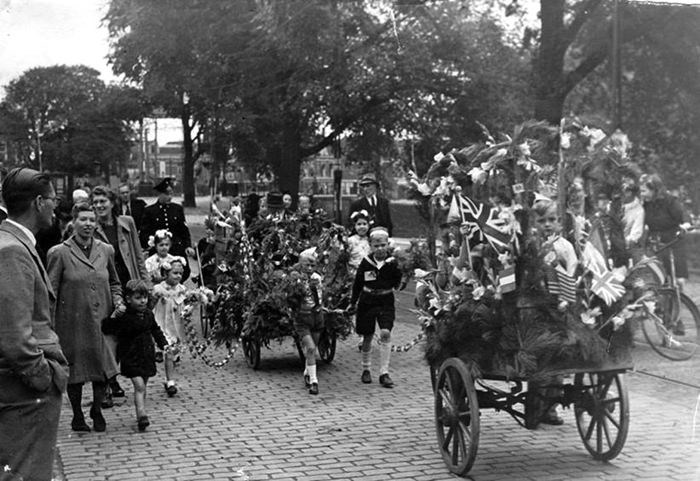When Canadian soldiers flooded the streets of Haarlem, Holland in the summer of 1945, five-year-old Tony Romeyn understood only that he was clutching chocolate in his hand.
"We never had candy," said Romeyn of the soldiers passing out the sweets a few short months after the country was liberated from Nazi occupation.
These 70 years later the Prince George resident still has a picture of that moment, his sisters in white dresses and him nestled in a cart out of sight, the streets around them safe after so many years in fear.
This spring marked the 70th anniversary of the end of the Second World War, as well as the liberation of the Netherlands. More than 7,600 Canadians died in that nine-month campaign to free the country from Nazi occupation between September 1944 to May 1945.
In those last months German soldiers came for Haarlem's men, including Romeyn's father, "to put them on the trains" headed for a concentration camp.
That particular day, seven children were sitting on the floor of his father's flower seed bulb store.
"When they came to pick up my dad and they saw the kids sitting on the floor, they asked if they were all his children," said Romeyn, now 75. "He kind of shook his head yes. They talked to each other and they left."
But two of those children weren't his, and soon after the father of those two was taken to the train. So Romeyn's father bribed the men with cigarettes and both fathers were saved.
"They were always on the lookout," Romeyn recalled, especially for food.
His sisters later told him how their bodies bore nutritional scabs with so little to eat.
"At times they ate flower bulbs - something to just get into the body."
One day his father left the city on his bicycle to butcher and bring back a pig the family still had in the countryside.
But on the way back, he was halted at a German post. The pig was stuffed and covered in the basket, but he was sure he would lose the meat destined to feed several families.
"They asked him what was in the basket and in the best way he could pronounce, he sort of said it was a pig," Romeyn said. "They laughed at him, and told him get out of here. They didn't believe him.
"When he was riding away, they saw a blood trail dripping from the pig and then they began to chase him. But then it started to rain and they lost him."
Although his father survived the war and emigrated on Canada Day in 1952 with his large family, he died of cancer two short years later.
"That was tough," recalled Romeyn, who moved to Prince George in 1969 and has retired from Industrial Reproductions Ltd., which he owned and his son now runs.
"Families left everything behind," said Romeyn, noting his family of nine came with one eight-by-eight foot crate holding all their belongings.
"We came not speaking a word of English."
That language barrier sent them by mistake to Vancouver, making the journey that much longer - including the seven days by ship to Halifax where Romeyn was plagued by seasickness. After days on the train, the family finally ended up in Lillooet, where his father and siblings worked at a hop farm.
Coming to Canada gave his family a chance at a better life when Holland was still rebuilding.
"It gave us a life that, I think of all my siblings, they all did well and were able to be successful," he said.
But it's that memory of the soldiers in the streets that comes back to Romeyn each Nov. 11.
"I think that stands out each time I think about when we have Remembrance Day. It's an amazing thing because where would families have been without that?"



